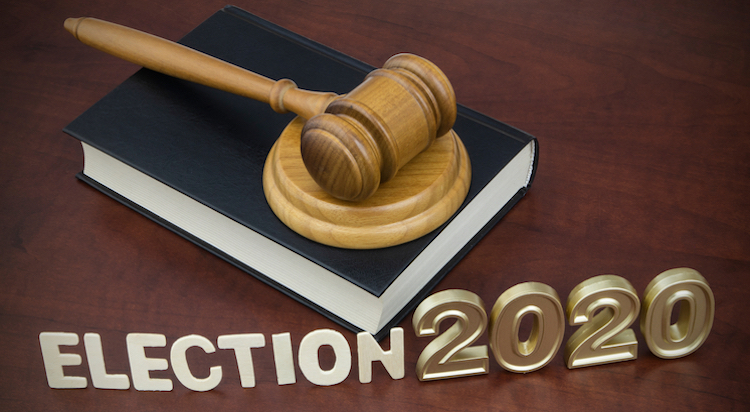Top Texas court questions subpoena efforts by Georgia grand jury probing efforts to overturn 2020 election

Image from Shutterstock.
Texas “is proving to be an outlier” in its courts’ response to subpoenas issued by a Georgia special purpose grand jury investigating efforts to overturn the 2020 presidential election, according to a story by the New York Times.
A majority of the Texas Court of Criminal Appeals, the top criminal court in Texas, suggested in two opinions last month that the Georgia special purpose grand jury could not compel the Texas witnesses to testify in Georgia, according to the New York Times story.
The Texas court ruled in the case of Jacki L. Pick, who is described as a Republican lawyer and pundit by the New York Times. But two other Texas witnesses, Sidney Powell and Phil Waldron, didn’t appear for their scheduled court dates after the Texas ruling, the New York Times reported.
The Texas Court of Criminal Appeals had dismissed Pick’s case as moot Sept. 1 because the subpoena had expired. In concurring and dissenting opinions, however, a majority of justices questioned whether the type of grand jury being used in Georgia was covered by the uniform law on securing out-of-state witnesses.
Pick had contended that the special purpose grand jury in Georgia was civil in nature, and it wasn’t even a grand jury as defined the uniform law. Dissenters who wanted to decide Pick’s case cited a Georgia Court of Appeals decision that found that special purpose grand juries conduct only civil investigations and have no power to indict.
“By refusing to compel the three Texas residents to testify in Georgia,” the New York Times reported, the Texas Court of Criminal Appeals “is breaking with a long tradition of cooperation between states in producing subpoenaed witnesses. All 50 states have versions of what is known as the Uniform Act, which was created in the 1930s to establish a framework for one state to compel testimony from a witness residing in another.”
Courts in three other states have ordered three pro-Trump lawyers to respond to the subpoenas, the New York Times points out. Those lawyers are John Eastman, Jenna Ellis and Rudy Giuliani.
Fulton County, Georgia, District Attorney Fani T. Willis could still travel to Texas to depose witnesses, according to the article.
Willis issued this statement: “We expect every state to abide by the constitutional requirement to ensure that full faith and credit is given by them to the laws and proceedings of other states. That requirement includes abiding by the interstate compact to produce witnesses for other states’ judicial proceedings.”



